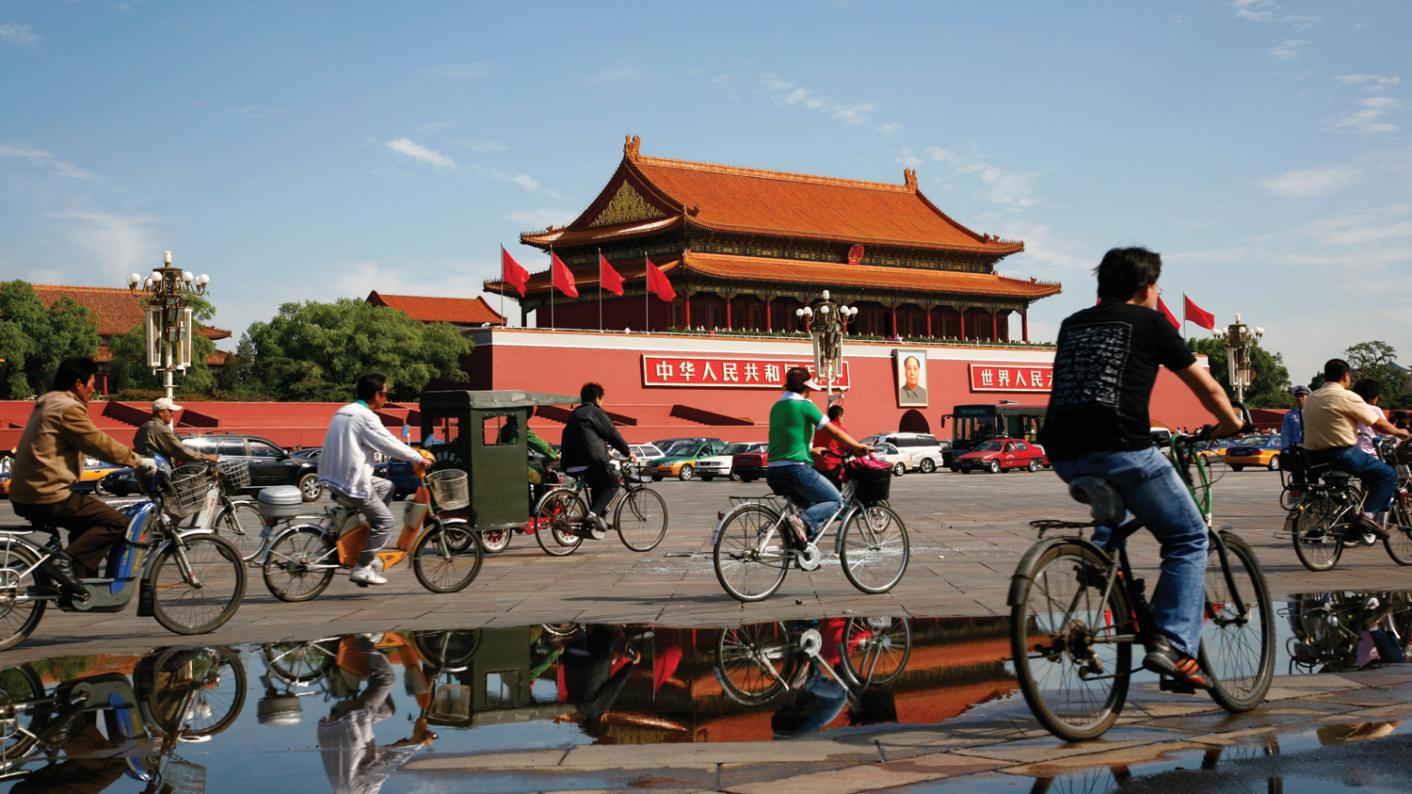No expense is spared in providing for China’s educational elite – from cafes and roof terraces to slides between school floors. But the pressure on students to achieve is intense.
It’s 7.30am and under a clear blue Beijing sky, 6,000 Chinese students are standing to attention on the stadium pitch in their school uniforms. Everyone turns to face the flag as it makes its way up the pole and the national anthem chorus fills the air. This flag ceremony is a weekly event, one that is completely organised and carried out by the students themselves. The students take huge pride in celebrating their nationalism.
Learn more about:
- Teaching in China: all you need to know
- Teacher jobs in China
- A day in the life of a teacher in Shenzen
- Find out about our international PGCE course
Everything 'oozes complete confidence'
This is my sixth year in China. I work at a highly prestigious Beijing national day school, where I am the principal for an A-level international centre.
Everything about the school campus oozes complete confidence. The school buildings themselves are imposing structures, incredibly well resourced with the latest technology. Our new international centre is currently being rebuilt and, when complete, this seven-storey structure will boast its own garden roof terrace, surround-sound theatre, Starbucks coffee shop and numerous slides for the students to whiz down from floor to floor. In Beijing, it often seems that government resources are unlimited when it comes to building educational facilities for China’s education elite.
The teaching day starts at 8am and finishes at 4.20pm, although most students will carry on with their studies throughout the evening.
Lunchtimes are staggered across the campus. Feeding 6,000 students in a two-hour period is no mean feat, but like clockwork the caterers seem to carry it off without incident every day. I opt for a generous plateful of fried Chinese dumplings (jiaozi), which are highly calorific, but hard to resist.
Learn more about:
No post-lunch naps
After lunch, it’s not uncommon for some Chinese schools to insist that the children return back to class, close the curtains, pull out their face cushions and, together with their class teacher, fall asleep at their desks for an hour. However, at my school students remain active throughout the lunch period. Some play sports, most complete private study.
At 3.15pm, we do eye exercises. These take place daily in every public school in China to promote eye relaxation. All the students sit at their desks rubbing their fingers around their eyes for 10 minutes accompanied by music piped through a sound system.
I leave school at 5.30pm and take a walk home through the gardens of my housing community. As I join a queue of shoppers to buy fresh vegetables, I hear violins, pianos and flutes emanating from pretty much every apartment block around me. Behind every one of these instruments is a Chinese child looking to shine like no other, flanked by parents whose heavy expectations can be felt through every vibrato.
In a city like Beijing, job competition is fierce and – because siblings are a rarity and social security payments are non-existent – every young person knows that they must work tirelessly to make their parents proud. It’s all about getting ahead of the rest.
This piece first appeared in Tes magazine on 22 July 2016.
Want to keep up with the latest career advice? Follow Tes Jobs on Twitter and like Tes Jobs on Facebook
